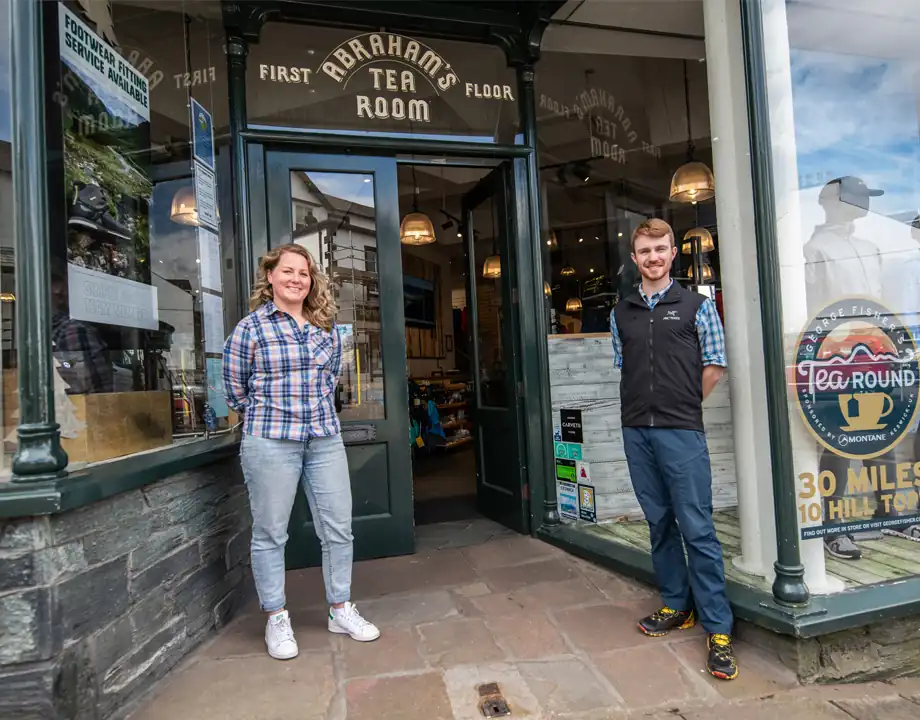
TRAIN, DON’T STRAIN
Written by George Fisher
Wednesday, 17 February, 2021

A walk is good for both humans and dogs, but it is a real strain for everyone if the dog is pulling at the lead, ignoring signals from their owners and generally running amok with wildlife and other countryside users.
Dogs are very context-specific learners, so training them only in class or at home is going to have minimal benefit when out on a walk. This is because the dog won’t necessarily associate the learning that takes place at home or in a training class with being outside on a country walk. So we need to view walks with our dogs as training opportunities, certainly until our dogs are well behaved, where we can train our dogs how we want them to behave so they are less of a strain on our patience and that of others.
Like climbing Everest, it all begins with the first step. Dogs pull on the lead because (in their view) owners reward them for pulling, by allowing them to get to the next metre of interesting smells. If we don't want our dogs to pull on the lead, then we have to teach them that the only way they can get to that all-important smell is if they stand by our side first. This is easily trained by holding a piece of food, or a toy the dog likes, by your side. The dog will then want that piece of food or toy and will stay by your side. You can then walk forward with your dog so it gets the reward of that fresh smell on the ground or, even better, some food from you or the chance to play with its toy.
Training dogs to walk beside their owners does take a lot of practice, but the main problem is most people only practice in training classes or at home; many don’t even do that. Conversely, when most of us go for a walk with our dogs we let them drag us down the road. The dog learns that, in the context of a walk, it is best to pull and so that is what it does. But if you turn your walk into a training game, by doing short sessions where the dog has to walk beside you, then the dog soon learns that the training that it has experienced at training class and at home is also applicable on walks. Once that happens, the dog’s behaviour and ability to follow commands or signals from its owner rapidly improves.
Training dogs to come back when called is another example that needs lots of practice. Most dogs don’t come back on walks as when they do return, owners often tell them off or place them on a lead. Both of these events encourage the dog not to come back. So when it hears the recall signal it stays away, or just ignores the signal.
 The alternative is to train your dog to come back on every walk at least 20 times and to always provide a reward of food, a toy, or lots of praise. Reward the best 30% (1 in 3) with the rewards the dog likes the most, and this includes allowing the dog to run back to the smell it was enjoying before it ran back to you. Practicing recalls on walks when the dog is distracted is essential as this is the only way the dog will learn that, in the context of interesting smells on walks, it is worth coming back to its owner.
The alternative is to train your dog to come back on every walk at least 20 times and to always provide a reward of food, a toy, or lots of praise. Reward the best 30% (1 in 3) with the rewards the dog likes the most, and this includes allowing the dog to run back to the smell it was enjoying before it ran back to you. Practicing recalls on walks when the dog is distracted is essential as this is the only way the dog will learn that, in the context of interesting smells on walks, it is worth coming back to its owner.
The same principles can be applied to training sit, down, stay and all the essential behaviours our dogs need to learn to become valued members of society! Our dogs will only be truly welcome in the countryside if we pick up their poo as well, and that is a training game that owners need to practice on walks too of course…
Above: Jess, Maya and Molly all doing a sit stay for Graham. Practicing sit stays regularly throughout a walk is essential to allow your dogs to learn that what they do at home or in training class is also applicable outside on walks.
Cover photo: Learning to walk on lead during a hill walk takes practice, so do so regularly on every walk just for a few steps at a time until the dog can do it for longer.



